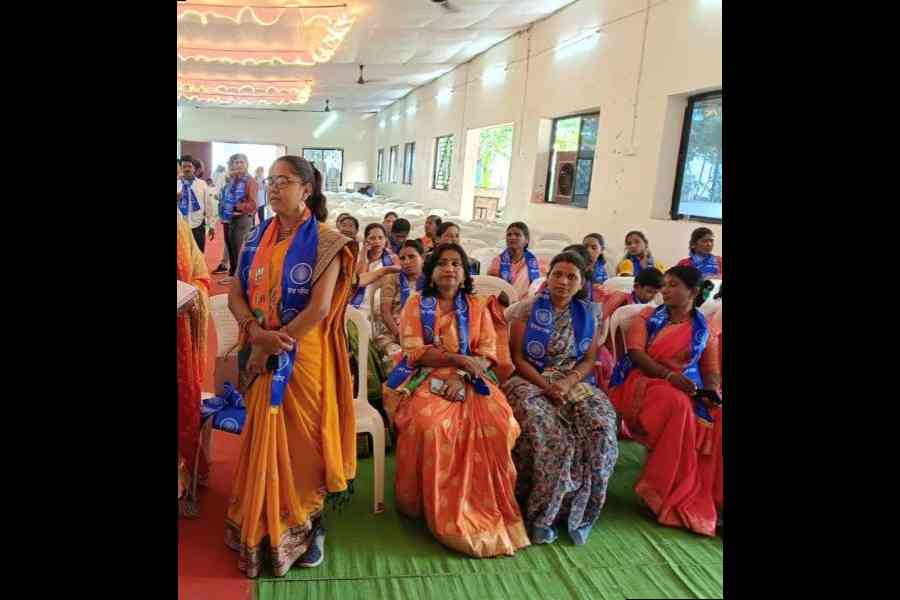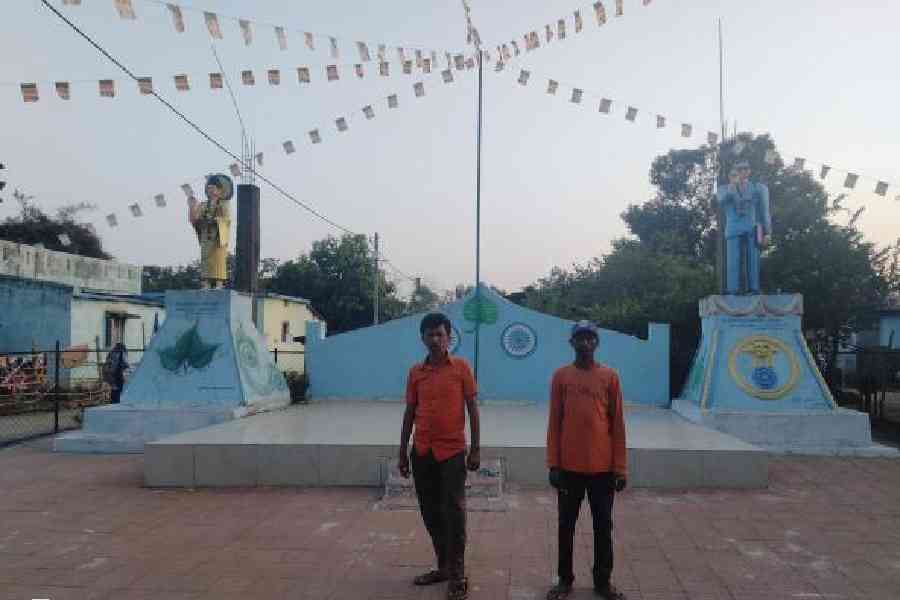Pheroze Khan from Mahadulla village under Kamthi constituency in Nagpur district wears a lotus badge on his shirt but that has nothing to do with the party he will vote for in the Maharashtra Assembly elections, he told this correspondent last week.
“Somebody gave me this badge. I am wearing it. But I will vote for the party of my choice,” he said.
In the same village, Madhubala Pramod Ukey from the Scheduled Caste (SC) community, was busy campaigning for BJP candidate Chandrashekhar Bawankulle, impressed by his “leadership”.
Chirkut Wase, another SC community member from Mahadulla, was campaigning for Praful Anandrao Manke, a candidate fielded by the Vanchit Bahujan Aghadi (VBA) headed by B.R. Ambedkar’s grandson Prakash Ambedkar.
About 200km away, Marooti Bhasarkar, a Buddhist from the SC community from Sidharthanagar village under the Ballarpur Assembly constituency in Chandrapur district, supports Congress candidate Santoshsingh Rawat against senior BJP leader and forest minister Sudhir Mungantiwar.
While Muslims seem to be more clear in their political preference against the BJP and its allies, the Dalits are a divided lot.
Ukey and Bhasarkar feel the Dalits have no trustworthy party to support.
“All parties are compromised, including the Bahujan Samaj Party (BSP) and the VBA. I am supporting the BJP because of the good leadership of Bawankule,” Ukey said.
Bhasarkar said there were about 40 Buddhist families in Sidharthanagar village and all the votes would go to the Congress candidate. “There are no jobs. The price rise is affecting every family. We need to change the government,” he said.
Pramodbabu Ramteke, a veteran artist in Nagpur, said the lack of unity among the Dalits was helping the mainstream parties benefit from their votes without doing much for them.
“Babasaheb (B.R. Ambedkar) had said we must remain united. We are doing the opposite,” Ramteke said.
There are over 50 political parties and organisations that claim to work for the Dalits in the country. The prominent among them fighting the elections are the BSP, VBA, Peoples Party of India (Democratic), Birsa Kranti Dal, Bharat Mukti Party and the Republican Party of India.
Dalits constitute 12 per cent of the population in Maharashtra. The VBA used to get nearly half of the SC votes. However, the party’s total votes plummeted from 45 lakh in 2019 to 15 lakh in the 2024 Lok Sabha elections.
“The leaders heading the independent Dalit parties and the SC leaders in the mainstream parties are focused on their own interest rather than the community’s interest,” Ramteke said.

Madhubala Pramod Ukey (standing) along with other Dalit women supporting the BJP in Mahadula village under Kamthi constituency in Nagpur. Picture by Basant Kumar Mohanty
B.D. Borkar, founding president of the Peoples Party of India (Democratic), said the SC community was disillusioned with the BSP and the VBA, which have failed to raise issues such as the deprivation of constitutional rights such as reservation and the right to lead a dignified life.
“By joining mainstream parties such as the Congress and the BJP, the SC and ST leaders have compromised the constitutional rights of both communities. The Congress and the BJP are taking them for granted. As a result, the political value of SCs and STs and also OBCs is zero,” Borkar said.
He said BSP chief Mayawati is unable to take a firm stand against the BJP. She had removed her nephew Akash Anand as the party’s national coordinator in May this year after Anand criticised the BJP at a rally.
Wase, the VBA president for Kamthi, denied allegations that the party had any underhand alliance with the Congress and the BJP and claimed it was being run through public donations.
Mominpura in the Central Nagpur Assembly seat has a predominantly Muslim population. The drains here are filled with garbage and the narrow lane connecting Central Avenue Road is always crammed with unauthorised vendors selling clothes, sandals, imitation jewellery and snacks. Pravin Datke of the BJP is fighting against the Congress’s Bunty Baba Shelke in this seat.
“The price rise of essential commodities has affected every family. The government is giving ₹1,500 to women every month under the Ladki Bahin scheme. But it takes away more than that,” said K.R. Rahman, a shopkeeper.
Rehman said he was paying ₹11 per unit for electricity in his shop. The price of soybean oil has increased by ₹30 from ₹120 per litre three months ago.
“The local problems are huge. No development has happened in this area for years. The drains are filled with garbage. Whenever there is rain, you cannot walk on this road. Despite complaints, the municipal workers do not come,” he said.










